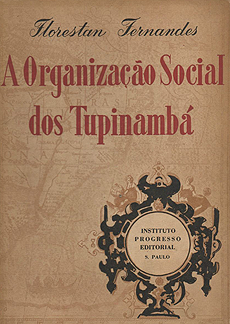Teses e Memoriais - 1981 / Mariza Peirano
Chapter one
Anthropology in context
It is often accepted that anthropological questions have changed over time. One can trace developments in the study of kinship, magic, religion, social organization, and symbolism, in both the sequence of themes and the internal elaborations through which each of these themes went in the past hundred years.
However accepted the idea of historical change in anthropology may be, and however we may take for granted the variability over time of scientific problems in general, little attention has been paid to the way in which anthropological problems vary across socio-cultural contexts. The scientific reality of today is neither the scientific reality of yesterday nor will it be the scientific reality of tomorrow, but does it not change also in different contexts? The assertion that
"Anthropology sees everything as culturally bound ... everything but itself"
is a good statement of this state of affairs.
This study seeks to explore the variability of anthropological questions in different socio-cultural contexts, using the Brazilian case as its object of inquiry. A comparative approach is implicit, although other examples will only occasionally be brought into the text. I start from the premise that 1) the anthropologist's thought is embedded in his own socio-cultural configuration and 2) given that anthropology's development coincided with the formation of the European nation-states, the ideology of nationhood is a powerful parameter for the characterization of the social sciences in any particular country. .
The development of anthropology may be of interest to both historians of science and anthropologists themselves. Historians of anthropology generally start with the idea that anthropology is a science, and their questions revolve around the kind of science anthropology is and how it has developed. Recent studies distinguish two approaches: one, which is called "traditional", has as its main objective the classifying of the scientists of the past according to whether, and to what extent, they had antecipated the present state of the discipline. The other, the "new historiography of the sciences", focuses on the intersection between history, epistemology, and the sciences. The latter approach questions whether the history of science should concentrate on the specific works themselves - the theoretical and experimental problems as defined by the scientific community - or whether it should also consider the influence of technological, socio-economic, institutional and political factors. Also of interest to the "new historiography" is the question of whether there is a continuous development of knowledge from common sense to science, or whether science should be seen as an epistemological eruption in a particular historical period. Leia na íntegra...

